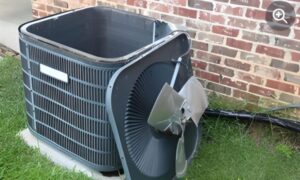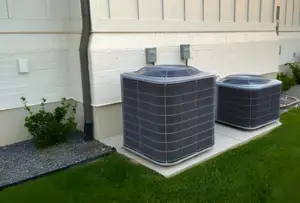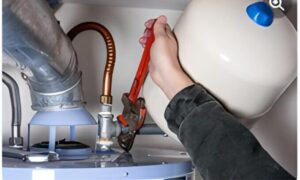Maintaining a warm and efficient home is a goal that many homeowners strive to achieve, but the secrets to achieving this can often remain elusive. From regular maintenance of your heating system to weatherizing your home, there are several key steps that can make a significant difference in your home's comfort and energy efficiency.
By understanding the importance of routine maintenance, checking filters and vents, and addressing issues with insulation and windows, you can create an environment that is not only cozy but also cost-effective.
But there's more to uncover, so let's dive into the details and discover the secrets that will unlock a warm and efficient home.
Importance of Regular Maintenance
Regular maintenance is essential for ensuring the efficient operation and longevity of your heating system. By scheduling regular maintenance, you can prevent costly heating repair service visits and ensure a warm and comfortable home during colder months.
It is recommended to schedule a professional furnace tune-up annually to ensure optimal performance. Visual inspection is also necessary to identify potential hazards, such as gas leaks and electrical issues, which should be reported and handled by professionals.
Additionally, checking and changing furnace filters regularly is crucial. Filters trap soot, dust, and dirt, preventing ductwork contamination and improving indoor air quality. Clearing obstructed vents is important as well, as dirty or blocked vents hinder proper distribution of warm air and decrease furnace efficiency.
Checking and Changing Filters
To ensure optimal indoor air quality and prevent ductwork contamination, it is crucial to regularly check and change furnace filters. Here are four important points to keep in mind:
- Furnace filters trap soot, dust, and dirt to prevent ductwork contamination.
- Filters should be checked monthly and changed or washed as needed.
- The service life of a filter depends on factors such as its type, workload, and occupancy levels.
- Respiratory conditions and pets can reduce the lifespan of a filter.
Regular maintenance of filters not only improves indoor air quality but also helps in maintaining the efficiency of the heating system.
Clearing Obstructed Vents
Maintaining clear and unobstructed vents is essential for optimal airflow and efficient performance of your heating system. Dirty or blocked vents hinder the proper distribution of warm air, leading to decreased furnace efficiency and increased wear.
Furniture, clutter, or carpeting can easily obstruct vents, impeding the flow of heat throughout your home. To ensure optimal airflow, it is important to regularly inspect and clean vents. Clearing any obstructions will improve the heating system's performance and help maintain a warm and comfortable environment.
Weatherizing Your Home
Effective weatherization is crucial for maximizing energy efficiency and preventing warm air from escaping your home, ultimately reducing your furnace workload.
To achieve optimal weatherization, consider the following steps:
- Conduct a simple test to check for air leaks near window frames.
- Add foam strip insulation to seal gaps and reduce air infiltration.
Consider hiring an HVAC expert for a comprehensive energy audit.
- Install weatherstripping on doors and windows to prevent drafts.
Thermostat Inspection
Regular inspection of your thermostat is essential for maintaining the optimal performance of your heating system. To ensure functionality, set your thermostat to heat and increase the temperature to test if it responds accordingly. If the thermostat is faulty, it may require battery replacement or even replacement itself.
Additionally, it is crucial to inspect the ductwork for any mold, dust, or dirt buildup that might obstruct airflow. If issues are found, consider hiring a professional duct-cleaning service.
Regular maintenance of both the thermostat and ductwork improves the overall performance of your heating system. By conducting these inspections, you can identify and address any potential problems early on, ensuring that your home remains warm and comfortable during the colder months.
Ductwork Examination
To ensure the optimal performance of your heating system, it is important to thoroughly examine the condition of your ductwork. Here are four key factors to consider during a ductwork examination:
- Insulation: Check the insulation surrounding your ducts for any signs of damage or deterioration. Proper insulation helps maintain the temperature of the air flowing through the ducts and prevents energy loss.
- Sealing: Inspect the ductwork for any leaks or gaps that could allow air to escape. Sealing these areas with duct tape or mastic sealant can improve the efficiency of your heating system.
- Airflow: Assess the airflow within the ducts to ensure it is unobstructed. Look for any blockages, such as debris or excessive dust, that might impede the proper distribution of warm air throughout your home.
- Condensation: Examine the ductwork for any signs of condensation or moisture buildup. This can indicate a potential issue with insulation or ventilation and should be addressed promptly to prevent mold growth.
Regular examination and maintenance of your ductwork can help improve the efficiency and performance of your heating system, resulting in a warmer and more comfortable home.
Improving Indoor Air Quality
Improving the indoor air quality of your home is essential for creating a healthy and comfortable living environment. Poor indoor air quality can lead to respiratory issues, allergies, and other health problems.
To improve the air quality in your home, consider implementing these practical tips:
- First, regularly clean and vacuum your home to remove dust, pet dander, and other allergens.
- Secondly, ensure proper ventilation by opening windows and using exhaust fans in areas prone to moisture, such as bathrooms and kitchens.
- Additionally, consider using air purifiers and installing high-quality air filters in your HVAC system to trap airborne particles.
- Lastly, avoid using harsh chemicals and opt for natural cleaning products to reduce the release of harmful volatile organic compounds (VOCs).
Energy Efficiency Audit
Conducting an energy efficiency audit is a crucial step towards optimizing the performance and sustainability of your home's heating system. To ensure that your home is energy-efficient, consider the following:
- Regular maintenance: Schedule an annual professional furnace tune-up and conduct visual inspections to identify potential hazards such as gas leaks or electrical issues.
- Checking and changing filters: Regularly check and change or wash furnace filters to improve indoor air quality and prevent ductwork contamination.
- Clearing obstructed vents: Inspect and clean vents regularly to ensure optimal airflow and prevent decreased furnace efficiency.
- Weatherizing your home: Address issues such as poor insulation, air leaks, and old windows to reduce energy loss and furnace workload.
Frequently Asked Questions
How Often Should I Schedule a Professional Furnace Tune-Up?
A professional furnace tune-up should be scheduled annually to ensure optimal performance and prevent costly repairs. Regular maintenance is essential for a warm and efficient home during colder months.
What Are Some Signs of a Gas Leak in My Home Heating System?
Some signs of a gas leak in a home heating system include a rotten egg odor, hissing or whistling sounds near gas appliances, and visible damage to gas pipes or fittings. If you suspect a gas leak, evacuate the premises immediately and contact a professional.
Can I Wash Reusable Furnace Filters, or Do I Need to Replace Them?
Reusable furnace filters can be washed and reused, but the frequency depends on factors like workload and occupancy. Regular maintenance, including checking and changing filters, improves indoor air quality and ensures optimal furnace performance.
How Can I Determine if There Are Air Leaks Near My Window Frames?
To determine air leaks near window frames, conduct a simple test by running your hand along the frame for drafts. Another method is to use a lit candle and check for flickering flames. These methods can help identify areas that require foam strip insulation for sealing gaps.
When Should I Consider Hiring an HVAC Expert for an Energy Audit?
Consider hiring an HVAC expert for an energy audit if you suspect poor weatherization, high energy bills, or inconsistent heating. An expert can identify areas of improvement to make your home more energy-efficient and ensure optimal heating system performance.
Conclusion
In conclusion, regular maintenance of your heating system is essential for a warm and efficient home.
Scheduling professional furnace tune-ups, checking and changing filters, clearing obstructed vents, weatherizing your home, inspecting the thermostat and ductwork, and improving indoor air quality are all important steps to ensure optimal performance.
By following these practices, you can create a cozy environment and reduce energy loss, ultimately saving on repair costs and enjoying a comfortable living space.








